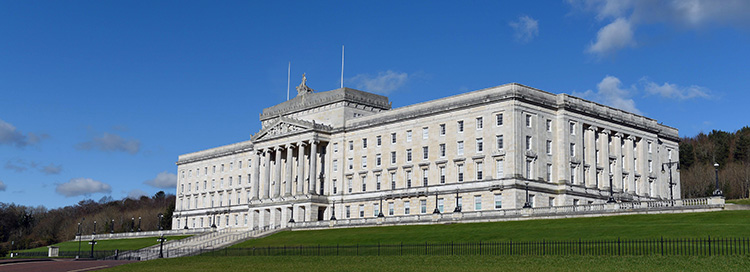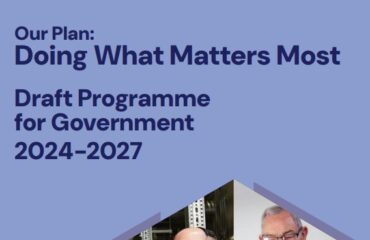The Windsor Framework and Agri-Food: what is new?

On Monday, 27th February 2023, the UK and EU announced a new ‘Windsor Framework’ to change the Northern Ireland (NI) protocol, agreed as part of the UK-EU Withdrawal Agreement. Agri-food trade has been one of the main areas affected within the two years of operation of the NI protocol, resulting in the ban of various Great Britain (GB) products, including seed potatoes and sausages, from being sold in Northern Ireland (NI). This blog post analyses the implications of the new Framework on agri-food governance in the UK.
The Essentials of the Framework
The Windsor Framework introduces two main legal arrangements to ensure a smooth flow of goods between GB and NI and to provide the NI devolved government with a degree of influence in the EU’s governance processes. The first arrangement is the creation of “Green” and “Red” lanes for goods moving from GB to NI. Green lanes will be used for goods destined for Northern Ireland, while the Red Lane will be used for goods at risk of moving onto the EU. Goods going through the Red Lane will remain subject to full EU checks and controls. In contrast, those going through Green Lane will not undergo ‘third country’ processes such as officially-signed certificates for food products and declarations for consumer parcels. Instead, there will be new data-sharing arrangements to monitor and manage risks without physical checks unless there is a specific risk or intelligence basis. The new Framework also includes the so-called “Stormont brake”, which is a new mechanism that will allow the NI Assembly to veto (accept or reject) the update of, or addition to, the small subset of EU laws applicable in Northern Ireland if such a change is expected to have a persistent “significant impact specific to everyday life”. The new Framework brings significant changes with the potential to address some of the shortcomings of the old NI protocol. However, there remain some governance issues that may come with the new Framework or which it fails to address.
The Implementation of the “Red and Green” Lane System may not be as simple as it seems
While classifying goods into the Green or Red lane may seem straightforward on paper, it would not be that smooth in practice. It will be challenging to categorise goods that do not have the risk of moving to the EU market, especially those in their raw state. Moreover, since internal UK businesses will do the categorisation and documentation without EU scrutiny, a high level of goodwill and trust from all stakeholders across the UK and the EU will be needed to secure the future of this arrangement.
Internal regulatory divergence may result in a competitive disadvantage for NI farmers and producers
The Windsor Framework also fails to come to grips with the challenges of internal regulatory divergence. Since NI remains under the EU’s regulatory regime, any substantial deviation from EU regulations, especially process-based rules, may put NI farmers and food producers at a competitive disadvantage. For instance, DEFRA held public consultations on the regulation of genetic technologies and released the so-called ‘plan to unlock power of gene editing’ in 2021. This evinces the government’s intention to overturn the 2018 European Court of Justice ruling that organisms created through genome editing techniques should be subject to the same regulations as Genetically Modified Organisms (GMOs). The UK government also lifted the EU ban on neonicotinoids for emergency use in England. Additionally, the UK has yet to adopt the ban on prophylactic antibiotics, which came into effect within the EU in February 2022. The EU has also implemented stricter regulations on food contaminants, including reducing the permissible levels of arsenic in baby food, shortly after the Windsor Framework was announced. All these are examples of potential divergence in process-based regulations, which may put a more significant regulatory burden on NI. The EU will be well-protected against these possible divergences as it only permits products that adhere to its rules to enter the Single Market, unlike NI, which will face competition with goods originating from GB through the Green Lane.
The Stormont Brake is not a comprehensive solution to the issue of democratic deficit
The Stormont brake provision does not fully address the democratic deficit within the EU-NI regulatory governance framework. At the moment, NI has no formal representation in the EU’s regulatory decision-making processes, yet it is still bound by all EU rules and regulations. Moreover, the intricate stipulations of the Stormont brake suggest that it will only be used in rare circumstances. That is to say until a unique case arises where the Provision is required, NI will solely function as a “rule taker” without any active involvement or contribution to the EU’s regulatory decision-making procedure. Applying the Stormont brake may also intensify the North-South frictions between NI and the Republic of Ireland (ROI) regarding cross-border trade. For example, a veto on a crucial EU regulation may cause a significant regulatory divergence between NI and ROI (EU), eventually leading to trade and political tensions between the two regions.
Conclusion
In conclusion, the Windsor Framework is a welcome improvement of the NI protocol addressing some shortcomings of the old protocol. It offers a more streamlined approach to trade between GB and NI, removing the trade barrier in the Irish Sea and safeguarding the free flow of goods within the UK’s internal market. It also partially addresses the democratic deficit in the existing governance framework by introducing the ‘Stormont Brake’. While this is undoubtedly a step in the right direction, there is still more work to be done in order to ensure Northern Ireland is involved in crucial EU regulatory decisions. This could be achieved by improving stakeholder consultation to ensure that the EU’s regulatory decision-making includes and considers the viewpoints of relevant stakeholders from NI. The enhancement in the consultation process can mitigate the impact of the Stormont brake by reducing its implementation and the resulting consequences. In addition, the UK government must take necessary measures to ensure that NI farmers and food producers are not placed at a disadvantage point. This could be addressed by providing subsidies on NI agri-food products meant for the UK market. Finally, substantial goodwill and trust from all parties are essential for the smooth implementation of the new Framework.




